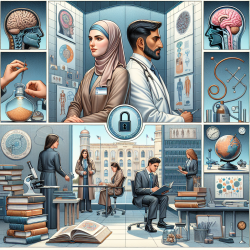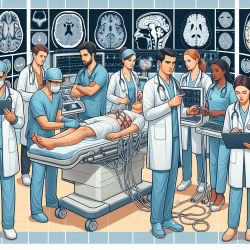The journey of becoming a competent psychiatrist is not just about acquiring medical knowledge and clinical skills. It also involves the formation of a professional identity (PI), which is crucial for effective practice and patient care. A recent longitudinal study titled Factors associated with professional identity formation within psychiatry residency training: A longitudinal study, sheds light on the factors that influence PI formation in psychiatry residents. This blog explores these findings and offers practical insights for practitioners looking to enhance their professional identity.
Understanding Professional Identity Formation
Professional identity formation is the process through which individuals internalize the values, behaviors, and aspirations of their profession. It is a dynamic process influenced by various factors such as time in training, seniority status, and prior exposure to the field. The study conducted on psychiatry residents in Singapore highlights these elements as significant contributors to PI development.
Key Factors Influencing Professional Identity
- Time in Training: The study found that time spent in residency significantly enhances PI. As residents progress through their training, they gain more experience and confidence, which contributes to a stronger professional identity.
- Seniority Status: Senior residents tend to have higher initial PI scores compared to junior residents. This difference is attributed to increased responsibility and autonomy in clinical decision-making as residents advance in their training.
- Prior Exposure to Psychiatry: Residents with more exposure to psychiatry before entering residency exhibit better PI development. This suggests that early and relevant clinical experiences play a crucial role in shaping one's professional identity.
Practical Applications for Enhancing Professional Identity
Based on these findings, here are some practical steps practitioners can take to foster their professional identity:
- Seek Early Exposure: Engage in psychiatry-related activities or shadow professionals in the field before starting formal training. This early exposure can provide valuable insights and set a strong foundation for your professional journey.
- Pursue Continuous Learning: Embrace opportunities for learning and self-reflection throughout your career. Attend workshops, conferences, and webinars to stay updated with the latest developments in psychiatry.
- Find Role Models: Identify mentors or role models within your field who exemplify the qualities you aspire to develop. Learning from their experiences can guide you in forming your own professional identity.
- Cultivate Self-Reflection: Regularly reflect on your experiences and interactions with patients. Consider how these encounters align with your personal values and professional goals.
- Create Support Networks: Build connections with peers and senior colleagues who can provide guidance and support as you navigate your professional path.
The Importance of Professional Identity in Psychiatry
A well-formed professional identity is essential not only for personal fulfillment but also for effective patient care. It helps psychiatrists project confidence, competence, and professionalism, which are critical for building therapeutic alliances with patients. Moreover, a strong PI enables practitioners to advocate effectively for their specialty and combat stigma associated with mental health.
The study underscores the importance of structured residency programs that provide adequate clinical exposure and support systems for both junior and senior residents. By fostering an environment conducive to PI development, residency programs can help shape competent and compassionate psychiatrists ready to make a positive impact in the field of mental health.
If you're interested in delving deeper into this topic, I encourage you to read the original research paper: Factors associated with professional identity formation within psychiatry residency training: A longitudinal study.










